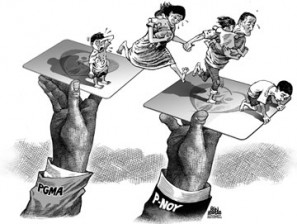
Instead of dismantling the program, the President acknowledged its usefulness and even asked Congress approval to extend more funds to it, a target being pursued by the Department of Social Welfare and Development (DSWD).
Like any program, it has its hits and misses. In Cebu City, social welfare officials trotted statistics that showed that about 5,000 more youths enrolled in elementary grade this school season.
The pitfalls were discouraging. Ten families were caught selling or pawning their Pantawid cards for P300 to P500 while several others endorsed their cards to others.
Under the Pantawid program, families are given cash incentives if they enroll their children in school. The age limit is until 14 years old only. Many families were delisted for exceeding the age requirement and for pawning their cards for some quick cash.
It remains to be seen whether the program would ultimately prove beneficial to Cebu and the rest of the country, but it’s far from being original so Arroyo loyalists could hardly crow about it.
Capitalist countries like the United States have the Salvation Army and soup kitchens where nutritious food is served to the poor. Police officers have food stamps, which they use in accredited stores for free meals paid for by the State.
In essence, this isn’t much different from the way PhilHealth cards were given by administration candidates of Arroyo’s regime as a way to drum up voter support.
Yet another variation is the fuel subsidy given by the Aquino administration to public utility vehicle (PUV) drivers to help them cope up with ludicrous fuel prices.
Still, we could only hope that for all the help it extends to the less fortunate, the Pantawid program doesn’t become a bottomless pit of cash doleouts for the poor.
While the fuel subsidy for the drivers appear to be a temporary setup sourced from the profits of the country’s Mampalaya oil field production, making the Pantawid program sustainable means creating better guidelines to discourage families from pawning their cards and otherwise diverting them at the expense of preventing their children from going to school.
A thorough assessment is in order at the end of the year, but for now the program should be enforced with utmost diligence and monitoring.